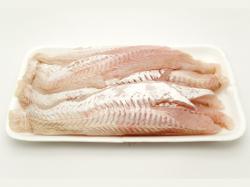Oceana Uncovers Widespread Seafood Fraud In New York City
December 11, 2012 | 2 min to read

NEW YORK — Oceana, the largest international advocacy group working solely to protect the world’s oceans, found 39 percent of seafood to be mislabeled in the New York City-area, according to a new report released today. DNA testing of 142 seafood samples from 81 retail outlets, including grocery stores, restaurants and sushi venues, confirmed that 56 samples were mislabeled according to United States Food and Drug Administration (FDA) guidelines.
“It’s unacceptable that New York seafood lovers are being duped more than one-third of the time when purchasing certain types of fish,” said Dr. Kimberly Warner, report author and senior scientist at Oceana. “Not only are New Yorkers being cheated when buying fraudulent fish, but those wanting to choose their seafood wisely for health, religious or conservation concerns are being seriously misled.”
Oceana’s investigation in the New York City-area, including Manhattan, Brooklyn, Queens and other surrounding towns, targeted species with regional significance like cod as well as those that were found to be mislabeled in previous studies such as red snapper, white tuna and wild salmon.
Among the report’s key findings include:
• 58 percent of the retail outlets sampled sold mislabeled fish (three in five).
• Small markets had much higher fraud (40 percent) than national chain grocery stores (12 percent).
• 100 percent of the 16 sushi venues tested sold mislabeled fish.
• Tilefish, on the FDA’s do-not-eat list because of its high mercury content, was substituted for red snapper and halibut in one small market.
• 94 percent of the “white tuna” was not tuna at all, but escolar, a snake mackerel that has a toxin with purgative effects for people who eat more than a small amount of the fish.
• Thirteen different types of fish were sold as “red snapper,” including tilapia, white bass, goldbanded jobfish, tilefish, porgy/seabream, ocean perch and other less valuable snappers.
“Everywhere we look, we find seafood fraud, and New York City is no exception,” said Beth Lowell, campaign director at Oceana. “Seafood fraud is a national problem that requires national attention. Traceability, tracking fish from boat to plate, will ensure that seafood is safe, legal and honestly labeled while preventing consumers from getting ripped off. ”
Oceana and others also recently uncovered shocking levels of seafood mislabeling in the Boston (48 percent), Los Angeles (55 percent) and Miami (31 percent) areas. Oceana is now urging Congress to pass the Safety in Fraud and Enforcement for Seafood (SAFE Seafood) Act, H.R. 6200, which would require full traceability for all seafood sold in the U.S. The bill, introduced this summer by Reps. Edward Markey (D-MA), Barney Frank (D-MA) and Walter Jones (R-NC), will likely be reintroduced next year and would take actions to stop seafood fraud that hurts our oceans, our wallets and our health.
To read Oceana’s new report, please visit www.oceana.org/nycfraudreport.
Oceana is the largest international advocacy group working solely to protect the world’s oceans. Oceana wins policy victories for the oceans using science-based campaigns. Since 2001, we have protected over 1.2 million square miles of ocean and innumerable sea turtles, sharks, dolphins and other sea creatures. More than 550,000 supporters have already joined Oceana. Global in scope, Oceana has offices in North, South and Central America and Europe. To learn more, please visit www.oceana.org.
Source: Oceana
